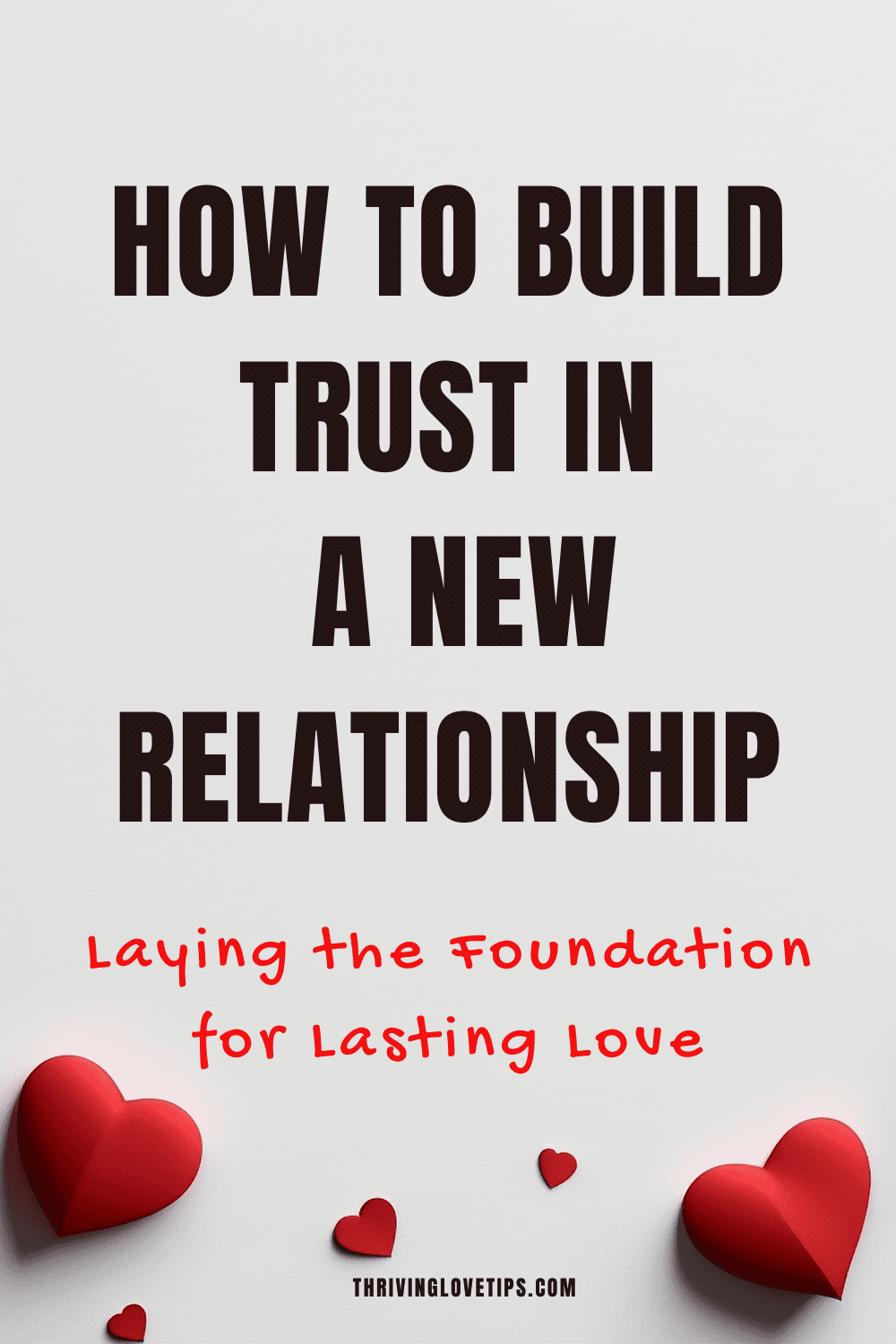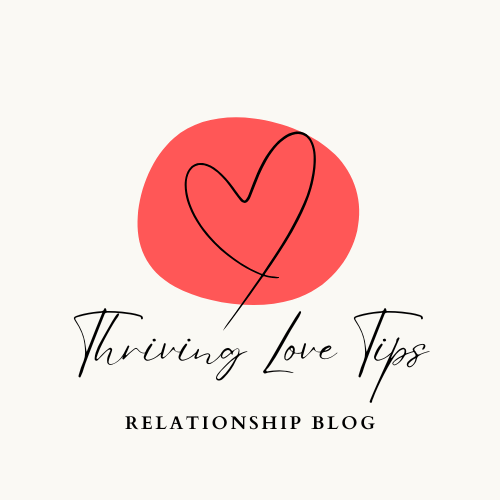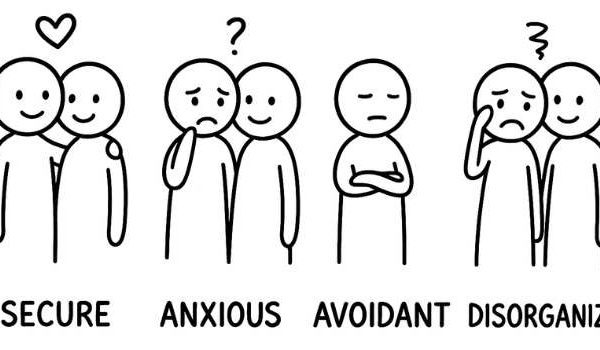There’s something both exhilarating and terrifying about the beginning of a new relationship. On one hand, you’ve met someone who makes your heart race, who you can’t stop thinking about, who might just be the person you’ve been waiting for. On the other hand, you’re standing at the edge of vulnerability, wondering if it’s safe to really open up, to let this person in, to trust that they won’t hurt you the way you’ve been hurt before.
Trust is the invisible foundation that every healthy relationship is built on. Without it, you can’t have real intimacy, genuine connection, or lasting love. But trust doesn’t appear magically just because you’re attracted to someone or because you want the relationship to work. It’s built slowly, deliberately, through consistent actions and honest communication over time.
The early stages of a relationship set the tone for everything that comes after. The patterns you establish now, the way you communicate, the boundaries you set, the vulnerability you share, all of these become the blueprint for your relationship going forward. Building trust from the beginning is about creating a solid foundation so that when inevitable challenges arise, you have something strong to stand on.
Whether you’re naturally trusting or you’ve been burned before and find it hard to open up, understanding how to consciously build trust can transform your relationship experience. It’s about being intentional, being honest, and being willing to show up as your authentic self while encouraging your partner to do the same.

Start with Self-Trust
Before you can truly trust someone else, you need to trust yourself. This might sound strange, but it’s fundamental. Self-trust means believing in your ability to handle whatever happens, to read situations accurately, and to make good choices about who deserves your vulnerability.
Many people who struggle with trust in relationships actually struggle with trusting themselves. Maybe you’ve been hurt before, and now you doubt your judgment about people. Maybe you ignored red flags in past relationships and you’re afraid you’ll do it again. Maybe you tend to override your gut instincts in favor of what you hope is true rather than what actually is.
Dr. Brené Brown, researcher and author, talks about trust as something that begins with self-trust. “If you don’t trust yourself, you’ll either stay closed off completely or you’ll give your trust away too quickly to people who haven’t earned it. Both patterns come from the same place: not trusting your own discernment.”
Building self-trust means paying attention to your instincts and honoring them. When something feels off, instead of dismissing that feeling, you investigate it. When you notice a pattern that concerns you, you address it rather than making excuses for it. When someone’s words don’t match their actions, you believe the actions.
This also means trusting yourself to survive if things don’t work out. Part of what makes us hesitant to trust is the fear that if we’re wrong about this person, if they hurt us, we won’t be able to handle it. But you’ve survived every heartbreak and disappointment up until now. You’re stronger and more resilient than you think. Knowing this makes it easier to take the risk of trusting someone new.
Read also: How to Overcome Retroactive Jealousy: Breaking Free from Your Partner’s Past
Communicate Openly from the Start
Trust is built through communication, and the patterns you establish early in a relationship tend to stick. If you start by being honest, direct, and open about your thoughts and feelings, you create a culture where that’s the norm in your relationship. If you start by playing games, hiding your feelings, or being indirect, you create a completely different kind of dynamic.
Open communication doesn’t mean you have to share everything immediately. It’s okay to reveal yourself as comfort and trust develop gradually. But it does mean being honest about what you do share. It means saying what you mean and meaning what you say. It means being direct about your needs, your boundaries, and your expectations.
Relationship therapist Esther Perel emphasizes that the quality of your communication sets the stage for intimacy. “When you can talk openly about small things, about preferences and feelings and daily experiences, you create a foundation for being able to talk about bigger things when they arise.”
This includes being willing to have uncomfortable conversations. Can you tell your partner when something bothers you, even early on? Can you express needs without apologizing for having them? Can you ask questions when you’re confused or concerned? Your ability to navigate these small, vulnerable moments builds trust muscle for bigger challenges later.
It’s also important to listen as openly as you speak. When your partner shares something with you, they’re offering trust. How you receive that, whether you listen without judgment, whether you remember what they’ve told you, whether you honor their vulnerability, all of this either builds or erodes trust.
Pay attention to whether conversations flow in both directions. Are you both sharing? Are you both listening? Or is one person doing all the talking while the other stays closed off? Mutual openness is what creates trust. One-sided vulnerability just creates an imbalance.
Show Up Consistently
Trust is built through repeated experiences of reliability. It’s not about grand gestures or dramatic declarations. It’s about showing up consistently, doing what you say you’ll do, and being who you claim to be, day after day, week after week.
Dr. John Gottman, whose research on relationships spans decades, describes trust as being built through what he calls “sliding door moments.” These are small, everyday opportunities to turn toward your partner or away from them. When your partner mentions something that happened at work, do you engage and ask follow-up questions, or do you stay focused on your phone? When they reach for your hand, do you take it, or do you pull away? Hundreds of these tiny moments add up to create trust or erode it.
Consistency shows up in various ways. It’s being on time when you say you’ll be somewhere, or calling if you’re running late. It’s following through on plans rather than constantly canceling. It’s being emotionally available not just when it’s convenient but also when you’re tired or stressed. It’s responding to texts and calls within a reasonable timeframe. It’s remembering things your partner has told you and showing that what they say matters to you.
This doesn’t mean you have to be perfect. Everyone forgets things occasionally or has days when they’re less present. But there should be a pattern of reliability, a baseline of consistency that your partner can count on. When inconsistencies do happen, acknowledging them and making amends builds trust rather than breaking it.
Psychologist Dr. Sue Johnson, developer of Emotionally Focused Therapy, notes that trust develops when someone proves they’re “accessible, responsive, and engaged” over time. Can your partner reach you when they need you? Do you respond to their needs and emotions? Are you actively engaged in building the relationship? Your consistency in these areas is what creates security.
Be Vulnerable in Small Steps
Vulnerability is essential for intimacy, but it’s also scary, especially in a new relationship where you don’t yet know if this person is trustworthy. The key is to be strategic about vulnerability, sharing gradually and paying attention to how your partner responds.
Start with smaller vulnerabilities and see what happens. Share something that matters to you and notice how they react. Tell them about a struggle you’re facing and see if they respond with empathy or judgment. Express a preference or boundary and see if they respect it. Each time you risk a small vulnerability and your partner responds well, trust grows a little.
Dr. Brené Brown describes this as the “marble jar” concept. Each positive interaction, each time your partner proves trustworthy with something small, is like adding a marble to a jar. Over time, the jar fills up, and you have a reserve of trust to draw on during harder moments. But you have to actually give them chances to earn those marbles.
This process works both ways. When your partner is vulnerable with you, your response matters enormously. Do you honor what they’ve shared? Do you keep their confidences? Do you respond with curiosity and compassion rather than criticism? How you handle their vulnerability teaches them whether you’re trustworthy.
Some people make the mistake of either sharing too much too fast or staying completely closed off. Neither extreme serves trust-building well. Oversharing can overwhelm a new partner and doesn’t give the relationship time to develop the foundation needed to hold heavy emotional content. Staying completely closed prevents a real connection from forming. The sweet spot is a gradual, mutual vulnerability that deepens as the relationship develops.
Pay attention to reciprocity. Are you both opening up at roughly the same pace? If you’re sharing deeply personal things and your partner stays at a surface level, that imbalance is worth noting. Healthy relationships involve both people gradually revealing themselves, creating mutual vulnerability and connection.
Establish and Respect Boundaries
Boundaries and trust might seem contradictory, but they’re actually intimately connected. Clear boundaries create safety, and safety is essential for trust. When you know where the lines are and can count on them being respected, you can relax and be present in the relationship.
Boundaries in new relationships cover many areas: how much time you spend together, how you communicate, physical and sexual boundaries, how you handle disagreements, what information you share with others about the relationship. Being clear about these things from the start prevents misunderstandings and resentment later.
Dr. Henry Cloud and Dr. John Townsend, authors of “Boundaries in Dating,” emphasize that boundaries aren’t walls that keep intimacy out. They’re property lines that protect what’s valuable. “When you respect each other’s boundaries, you create an environment where both people feel safe enough to be vulnerable.”
Part of boundary-setting is being clear about your expectations. What does exclusivity mean to you? How much communication do you need? What are your dealbreakers? These conversations might feel awkward, but having them early prevents much bigger problems down the road.
Just as important as setting boundaries is respecting your partner’s boundaries. When they say no to something, that answer is honored without pressure or guilt-tripping. When they express a need for space or time or a particular kind of support, you take that seriously. Boundary respect is one of the clearest demonstrations of trustworthiness.
Notice how your partner responds to your boundaries. Do they respect them immediately, or do they push back and try to negotiate? Do they honor your “no,” or do they keep asking until you give in? Someone who consistently disrespects your boundaries early in a relationship is showing you they’re not trustworthy, regardless of how charming they might be otherwise.
Address Issues as They Arise
Trust isn’t just built through positive interactions. It’s also built through how you handle conflict and disagreement. In fact, successfully navigating a difficult conversation or resolving a conflict can actually strengthen trust more than months of smooth sailing.
When something bothers you or when there’s a misunderstanding, addressing it promptly and directly builds trust. It shows that problems don’t have to be relationship-ending catastrophes. It demonstrates that you can both handle difficult emotions and conversations. It creates a pattern of working through things together rather than avoiding conflict until resentment builds.
Relationship researcher Dr. John Gottman has found that how couples fight is more important than how much they fight. Healthy conflict involves both people expressing their perspectives, listening to each other, taking responsibility for their part, and working toward resolution. It doesn’t involve name-calling, contempt, or bringing up every past mistake.
Early in a relationship, how you handle your first disagreement sets a crucial precedent. Can you express concern without attacking? Can you listen to criticism without becoming defensive? Can you apologize when you’ve made a mistake? Can you forgive and move forward? These patterns establish whether difficult moments will strengthen or damage trust.
It’s also important to be willing to repair ruptures when they happen. No relationship is perfect, and everyone makes mistakes. What matters is what happens next. Can you acknowledge when you’ve hurt your partner? Can you make amends? Can you show through your actions that you’ve learned something? This repair work is essential for maintaining trust.
Give It Time
Perhaps the most important thing to understand about building trust is that it can’t be rushed. Trust develops through repeated experiences over time. You need to see your partner in various contexts, various moods, and various levels of stress. You need to experience them keeping promises, respecting boundaries, showing up consistently, not just once or twice, but as a pattern.
In our culture of instant gratification, we often want to know immediately if someone is trustworthy. We want certainty early on. But real trust requires time and experience. It requires seeing someone not just at their best but also handling challenges, stress, disappointment, and conflict.
Clinical psychologist Dr. Alexandra Solomon suggests that new relationships need time to develop what she calls “relational resilience.” “You need to go through some things together, to see how you handle both good times and hard times, before you can really know if this is someone you can trust long-term.”
This doesn’t mean you should be constantly testing your partner or looking for reasons not to trust them. It means being patient with the process, allowing trust to develop naturally through accumulated experiences rather than trying to force it or pretending it’s there before it actually is.
Different people develop trust at different paces, and that’s okay. If you’ve been hurt before, you might need more time and more evidence of trustworthiness before you feel safe. If your partner has been hurt, they might need the same patience from you. Respect each other’s pace while also ensuring that the relationship is actually moving forward, not staying stuck in a holding pattern of perpetual caution.
Trust Your Instincts About Red Flags
Building trust doesn’t mean ignoring warning signs. Part of healthy trust-building is paying attention to red flags and taking them seriously. Your gut instinct about someone is often right, even when you can’t articulate exactly why something feels off.
Common red flags in early relationships include: inconsistency between words and actions, pressure to move faster than you’re comfortable with, boundary violations, controlling behavior, excessive jealousy, disrespect toward others, dishonesty about small things, and an unwillingness to take responsibility for mistakes.
If you notice these patterns, don’t dismiss them or make excuses for them. Trust is earned through behavior, and these behaviors show someone isn’t trustworthy. No amount of chemistry or potential is worth ignoring serious red flags.
Dr. Ramani Durvasula, who specializes in narcissism and toxic relationships, emphasizes the importance of trusting these early warnings. “When someone shows you who they are early on, believe them. Don’t get so invested in who you hope they could be that you ignore who they’re showing you they actually are.”
The Gift of Building Together
When you build trust intentionally from the beginning of a relationship, you’re creating something solid and lasting. You’re establishing patterns of honesty, vulnerability, respect, and reliability that will serve you through all the phases of your relationship. You’re learning to be partners who can count on each other, who handle difficulties together, and who create safety for each other to be authentic.
This foundation of trust is what allows real intimacy to develop. It’s what lets you relax into the relationship rather than constantly monitoring for danger. It’s what makes it possible to build a life together, knowing you’re both committed to honoring and protecting what you’ve created.
Trust-building is an ongoing process, not a destination. Even in long-term relationships, trust needs to be maintained through continued consistency, communication, and care. But the foundation you build now, in these early months, is what everything else will rest on. Build it well, build it strong, and build it together.




